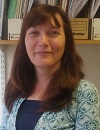Making the most of your time at university
A series of workshops designed to support student learning and promote between year-group communication were devised and delivered to Medical Sciences students as part of the School’s aims to enhance student support.
The 1 hour workshops had an overarching theme of ‘Making the most of your time at University’.
Three workshops were offered entitled:
- Making the most of your Feedback
- Making the most of your Opportunities at University
- Making the most of your Graduate Attributes
The workshops were interactive and encouraged small group discussion between year groups. In addition, each workshop used real discipline-specific examples to add value to the discussion. For example, the “Making the Most of your Feedback” workshop explored student understanding and expectation of feedback including when feedback occurs. Students worked in small groups to discuss and grade real examples of feedback with a major aim of ‘decoding’ and establishing the main message(s) from each. A ‘Feedback Action Plan’ was introduced and employed to highlight how students can use their own feedback to improve and enhance future learning. Students were encouraged to bring in some of their own work and related feedback. Further information relating to the subject matter was also provided.
In the “Making the Most of Your Graduate Attributes” workshop students worked in small groups to reflect on the definition, importance and self-assessment of Graduate Attributes (GA) within the context of career progression. The workshop introduced the UoE’s definition of GA and mapped these with the more familiar ‘employability/transferrable skills’. Students were asked to identify which skills they believe important for future employment before judging their choice against several real job specifications. Importantly, students were asked to self-assess their competency in a number of key skill areas with past interview questions used to highlight the need to evidence their GA and reflect on the level of skills attained. Courses within the degree programme were used as a basis for how GA can be developed and enhanced. The workshop finished with an overview of common mistakes in CV preparation and interview environments. Further information relating to the subject matter was also provided.
Key themes and topics
- Student Engagement
- Impact on Students
Motivation and Aims
The School of Biomedical Sciences takes feedback on teaching practice very seriously and continuously seeks to improve the student experience. Based on discussions with students a number of issues were identified that would be useful to help our students make the most of their time at university both academically and in terms of future career progression. To allow our students to explore these issues in a meaningful and constructive manner it was decided that informal, interactive workshops would be the best format.
Students elected which workshop(s) to attend. As the workshops were designed to encourage communication between year groups no restrictions were applied. Thus, the workshops were designed to be useful for all students regardless of stage of study.
Successes and lessons learnt
The workshops were offered to all students on the BSc Medical Sciences degree programme with students expected to attend at least one session. Student participation in the programme was high, with attendance at over 94%. A short questionnaire was issued at the end of each workshop.
One question asked students to rate the usefulness of the workshop. Approximately 15% of students felt the workshops ‘very useful’, 70% of students rated the workshops ‘useful’ and 15% rated the workshops ‘slightly useful’. No student gave a rating of ‘no use’.
Students were also asked for the best/worst aspect of the workshops. Students particularly liked the small group nature and interactivity associated with the lesson. Using discipline-specific examples in each workshop also made the session more meaningful to the students.
Suggestions for future workshops were also asked for and these are being used to develop new workshops for the coming session.
Scalability and transferability
The workshops were planned to be scaled up to a larger cohort. However, there is a challenge in timetabling the workshops to be accessible to all year groups in a degree programme when students, even in the same year, do not take the same courses or are in the same location. Workshops need to be offered in different locations and times to ensure good student engagement.
Workload commitment comprises gaining suitable topics through student discussion, resourcing suitable discipline-specific examples to be used, planning, preparation and delivery. There must also be a commitment to review the success of the workshops based on student feedback.
Location of practice: Biomedical Teaching Organisation
Date: 7 August 2013
Author:
Dr Deborah Shaw
Lecturer and UG Senior Personal Tutor

- Biomedical Teaching Organisation (BMTO)
- Edinburgh Medical School: Biomedical Sciences
Contact details
- Work: +44 (0) 131 650 9875
- Email: Deborah.Shaw@ed.ac.uk
Address
- Street
Medical School (Doorway 3)
Teviot Place- City
- Edinburgh
- Post Code
- EH8 9AG

